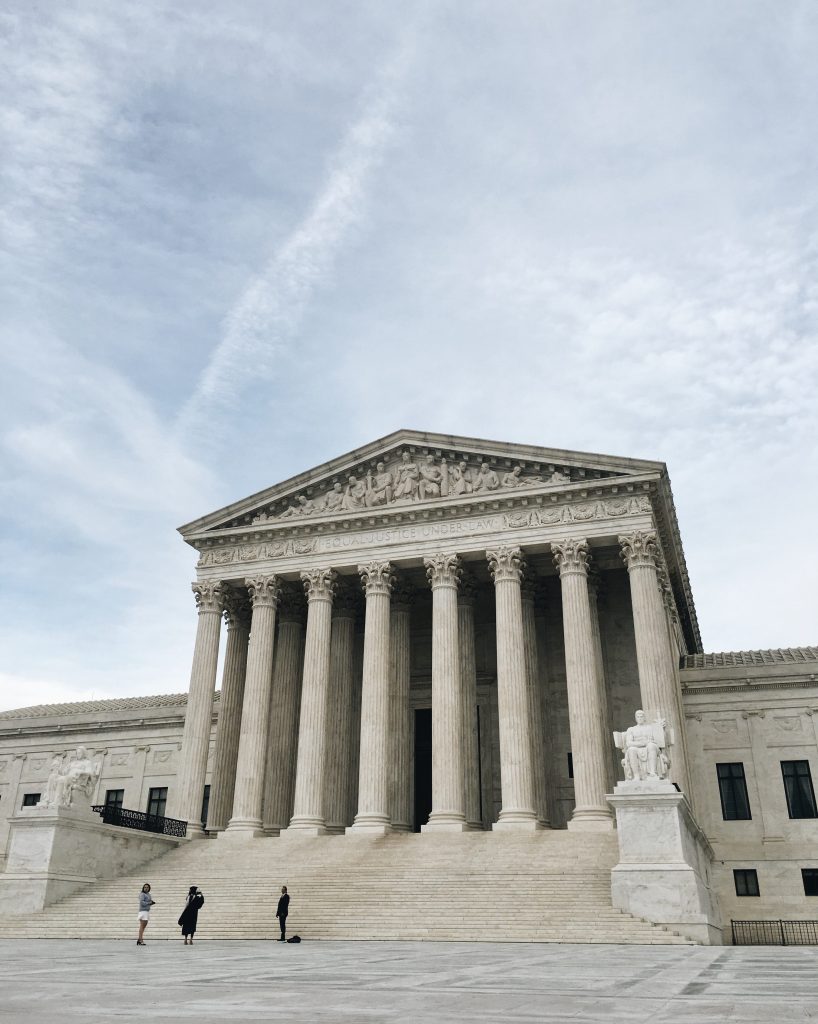Lawyers are notoriously busy people. Between billable hours, court appearances, and the countless papers to be prepared, it’s hard to imagine finding time for a vacation. But is it really?
In this post, we’ll take a look at whether lawyers have time for vacation – and if they do, how they can make the most of their time away from the office.
We’ll also discuss some tips for reducing work-related stress so you can come back refreshed and ready to take on whatever challenges lie ahead. So read on to find out more!

Do Lawyers Go on Vacation?
Lawyers do go on vacation—but not as much as non-lawyers might think. Some firms adopt a policy where they encourage their lawyers to go on vacation for anywhere from 1 to 4 weeks. Since the pandemic hit, many firms have been thinking about offering their associates “limitless” vacation time. The question then becomes, do lawyers actually take their vacation incentives?
Some lawyers do, while others don’t. This may not be surprising for seasoned attorneys, as firms are very particular with billable and nonbillable hours, and many lawyers accrue a surprisingly large amount of billable hours throughout the year.
Billable hours refers to the actual time attorneys work or deal with matters for clients. Non-billable hours are those that the client does not pay for. Some examples of non-billable hours are lawyer networking, continuing legal education, administrative functions, and timekeeping, among others.
Unfortunately, it’s very difficult for some attorneys to imagine going on vacation, or even having time to plan for a vacation. Typically, the usual required billable hours for lawyers range between 1,700 to 2,300 hours annually. This means most lawyers report for work for at least 7-9 hours a day, for at least 5 days each week.
However, not all of these hours are actual billable hours. Some sources estimate that the average billable hours per day for attorneys are just 2.5 to 3 hours. For this reason, many attorneys spend about 40 to 80 hours a week just to try to reach their target billable hours.
With this in mind, it’s not difficult to imagine why lawyers would rather skip vacation time or work while away on vacation because of the long hours that they need to put in on a regular basis.
Unfortunately, these long hours may result in lawyers being prone to alcohol abuse and mental health issues. Some studies suggest that one in five lawyers experience binge or heavy drinking. For these reasons, many law firms are looking into ensuring that their lawyers are taking their time off.

How Do Lawyers Get Vacation Time?
The consensus on vacation time for lawyers is about 20 days annually at most law firms, which is 4 weeks of vacation time. Some firms choose to increase this number for senior associates and offer up to 25 days of paid time off (PTO) or more. As of 2022, many law firms are finding ways to help their lawyers avoid burnout while simultaneously lessening turnovers.
Instead of just offering limitless vacation time, some firms are looking at actually paying for their associates to go on a vacation. Others, however, choose to pay their lawyers for their unused vacation days. While some law firms choose to pay their associates bonuses for hitting the billable hours target, others choose to increase salaries, especially for junior associates, as it incentivizes them to keep their young talents.
Another way lawyers can acquire vacation time is through programs curated by large firms, such as Goodwin Procter’s proposed “Recharge on Goodwin” program. This program was created to provide “thoughtful curated weeklong” trips to their associates and professional track attorneys.
Those who are eligible for this program are high billers with at least 1,950 hours in 2021. In addition to lawyers, science advisors and science law clerks are also included in this program.
According to Goodwin Procter, the purpose of this program is “to ensure that eligible lawyers can take a relaxing and rejuvenating vacation on the firm this year!” The cost of these vacation trips ranges from $5,000 to $10,000.
Similarly, the firm Orrick, Herrington & Sutcliffe recently launched the “Orrick Unplugged” policy for their lawyers. This policy allows their attorneys to take a week off from work without having to suffer from missed billable hours.
The Orrick Unplugged program credits their lawyers 40 billable hours when they take their weeklong vacation. Under the policy, there is a “buddy” who will cover for the vacationing lawyer so the latter can really unplug and enjoy their time off.

Should Lawyers REALLY Go on Vacation?
According to ALM’s Mental Health and Substance Abuse Survey reported in 2021, over 70% of the population has noticed a decline in their mental health due to the pandemic. Unsurprisingly, isolation was listed as the top reason for this.
Lawyers are certainly not immune to this, and many attorneys are affected by burnout and mental health issues due to the heavy workloads and long hours they tend to take on.
A vacation is one way of reducing these mental health issues and causes. In fact, the American Psychological Association published a newsletter encouraging everyone to take a vacation. According to the author, Dr. Andrea Robinson, Ph.D., here are four science-backed reasons to take a vacation this year:
Increased Life Satisfaction
Vacations have been shown to increase happiness, which in turn provides physical and mental health improvements. Because of this, taking vacations to create a healthy work-life balance results in increased life satisfaction.
Physical Health Improvements
According to a Framingham Heart Study, skipping vacation time may increase the risks of having heart disease. This study was done within a nine-year period where there was a “positive correlation between more frequent vacations and longer, healthier lives.”
Mental Health Benefits
A vacation can benefit mental health, as it removes the person from locations and activities that he or she finds stressful. One study on about 800 lawyers found that depression and job stress can be significantly reduced through taking vacations.
Improve Productivity
The Boston Consulting Group (BCG) conducted time-off experiments which showed that workers who took vacations are more productive compared to workers who did not take vacations.

Things to Consider When Going on Vacation
Lawyers who are used to working long hours should take a breather and unwind. Lawyer burnout is a real issue, and it can be reduced by simply taking the time off and unplugging.
Before planning that long overdue vacation, here are several considerations:
1. Timing is Key
Planning your caseload around your expected vacation dates should be your first consideration when planning for a long getaway. It would also be a good idea to check your legal calendar to see if there are court holidays within the next 6 months or so.
Likewise, have you checked your continuing legal education (CLE) schedule? Believe it or not, you can fit in your vacation time while also earning your CLEs, thanks to Destination CLEs. Destination CLEs allows you to meet your required CLE hours in the most beautiful locations around the world. Click here to book your next Eduvacation℠ of Destination CLEs today!
2. Make Communication Plans
Before going on vacation, make sure to notify your colleagues, staff, and clients about your absence. Provide your clients with the necessary point of contact for any updates on their cases or for their questions.
For your staff, partners or colleagues, give them adequate instructions on (1) important and urgent matters, (2) a list of clients or cases that they need to cover while you are away, and (3) how and when you can be contacted while you’re on vacation.
Additionally, make sure to filter your emails depending on the importance and urgency of the matter. It’s a good idea to tag your key clients so you can easily see their emails first when you get back.
While setting up your email, don’t forget to make an out-of-office email reply. Your message should include the dates of your absence, contact persons that they can call or email, and other relevant information that you think should be included. Make your out-of-office email short, but polite and informative.
3. Consider a Succession Plan
According to the American Bar Association (ABA), it’s important to consider making a succession plan to ensure your clients are taken care of no matter what. Here’s the ABA’s ruling on Rule 1.3 Diligence item 5:
To prevent neglect of client matters in the event of a sole practitioner’s death or disability, the duty of diligence may require that each sole practitioner prepare a plan, in conformity with applicable rules, that designates another competent lawyer to review client files, notify each client of the lawyer’s death or disability, and determine whether there is a need for immediate protective action.
This is a sort of contingency plan that would help your clients as well as your firm in the case of an unfortunate event.
4. Short-Term Legal Coverage
As a lawyer, you have a responsibility to make sure your clients are taken care of if you’re going out for an extended period of time. It’s important to speak with other lawyers in the office about current cases and ensure they can cover any gaps while you’re on vacation. There are also some freelance legal professionals who can cover for you if you have your own practice or are working with limited manpower.
5. Billing Plans
Since the pandemic, many law firms have taken the initiative to make automated payments through cloud-based services. Some firms have different payment options that allow clients to settle any legal bills online. If you don’t already have a way to bill clients remotely, it would be a good idea to set something like this up before leaving on vacation.

Conclusion
While it can be difficult for attorneys to go for a vacation without worrying about what they’re leaving behind, there are ways for lawyers to get away without completely disconnecting from work.
One option is to attend an educational CLE retreat that offers a unique and relaxing setting, like with Destination CLEs. Our all-inclusive CLE vacation packages provide attorneys with the opportunity to learn new information while enjoying some well-deserved time off.
We offer several different exotic locations so you can find the perfect fit for your needs, and our experienced team of educators will make sure you walk away with valuable knowledge that you can use back at the office. If you’re looking for an escape that will help you recharge and come back feeling refreshed, click here to book your next Eduvacation℠ of DestinationCLEs.
